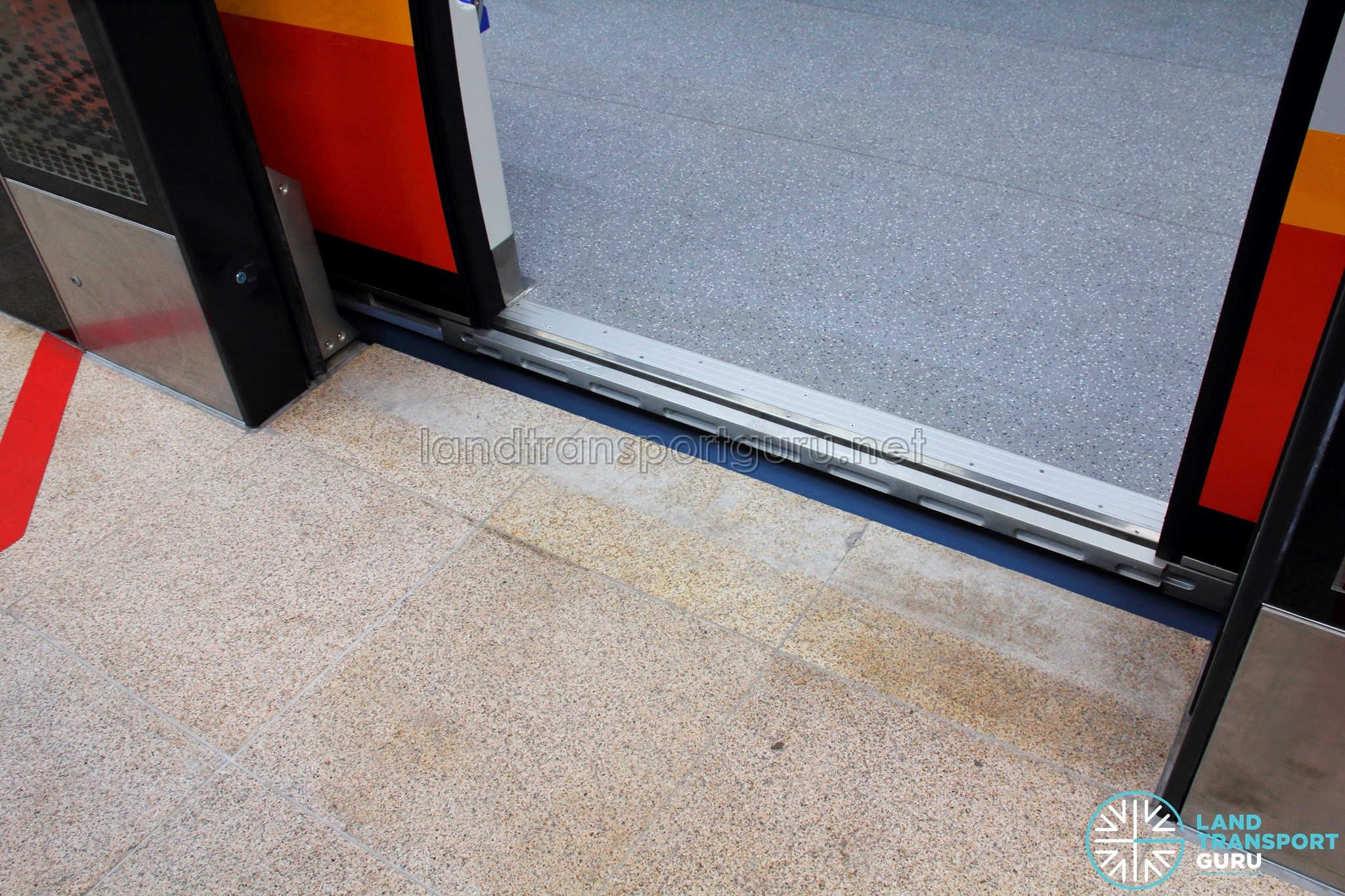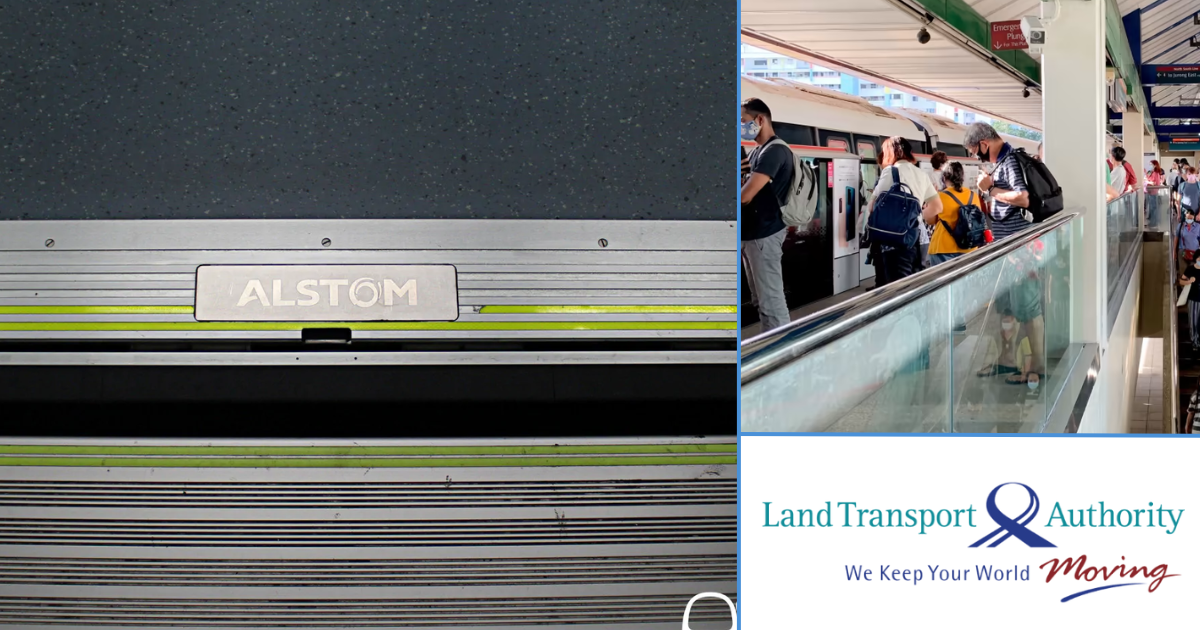Have you been noticing narrower gaps between the station platform and train floor when you’re boarding off/on the MRT train? Well, you’re not hallucinating it.
According to the Land Transport Authority (LTA), platform gap fillers are being fitted on 64 older Circle Line trains, with installation works completed for 24 of them and the remaining 40 trains slated to have these rubber strips by 2025.
LTA is currently assessing if gap fillers – which narrow the gap between the train floor and platform edge – can be installed on the 92 fourth- to sixth-generation trains that serve the North-South and East-West lines.
This was stated by Minister for Transport Chee Hong Tat in response to a query made by Ong Hua Han, a Nominated Member of Parliament, who asked if LTA planned to install gap fillers on trains consistently across all MRT lines, and when this would be accomplished.
Moreover, all trains on the Circle Line will be replaced with those with gap fillers by 2025.
Currently, all trains along the Thomson East-Coast line (brown), Downtown line (blue), and North-East line (purple).
This means that at the moment, more than half of the North-South Line (red) and East-West (green) trains are being progressively decommissioned, to be replaced by 106 trains with gap fillers by 2026.
That means that the risk of you dropping your phone onto the train tracks will be significantly lowered (not completely, though).
Currently, according to The Straits Times, the platform gaps range between 36mm on the Downtown line– where trains have gap fillers – and 110mm on the underground stations on the North-South and East-West lines.
However, when gap fillers were added to the above-ground trains along the North-South and East-West lines in 1997, this reduced the gap distances to 75mm, making it much safer for commuters to cross.
However, installing train fillers isn’t an instant process.
A LTA spokesman said on 11 March in response to queries that the authority is considering factors like the remaining lifespan of these trains, and the technical feasibility given the varying train heights and clearance space from platforms across different train models.

According to LTA, gap fillers help to bridge the platform gap and usually come with a gentle slope to enable passengers to safely board and disembark trains. Station staff are also available to help passengers who require assistance.
We’re no strangers to the occasional train incident. While SMRT endeavors to keep commuting as safe and peaceful as possible, it’s inevitable that some train incidents still occur, be it due to rush hour or whatnot.
The last few years have seen quite a number of serious MRT incidents to do with the train gaps occur.
In 2015, a woman’s leg was trapped in between the train floor and platform at Boon Keng MRT.
According to The Straits Times, a Singapore Civil Defense Force (SCDF) personnel received the distress call at around 8.10am.
The SCDF freed the woman, who was in her 40s, using hydraulic tools, and afterwards, she was taken to Tan Tock Seng Hospital with abrasions and swelling on her right knee.
In 2017, a woman’s leg was also wedged in between the gap, and was badly bruised. She said that she was traveling to her workplace during peak hour when someone had pushed her and she’d fallen between the gaps at City Hall MRT.
While the woman managed to get her leg out with the help of a passerby holding the doors, she realized how bad the injury was when she was arriving at Raffles MRT. After informing SMRT employees, she was taken to Singapore General Hospital, where she received outpatient treatment.
In 2019, a woman’s leg was also caught in the train gaps at Buona Vista MRT on the train traveling towards Harbourfront MRT during peak hour.
According to SMRT, the platform’s emergency stop feature was activated almost immediately, and SMRT employees and other commuters helped to release the woman’s leg; she was taken to National University Hospital afterwards.
The most recent incident happened in 2023, where a woman’s wheelchair legs were caught in the gap. While commuters nearby managed to successfully lift the wheelchair out of the gap, this incident raised issues about accessibility in MRT stations, especially for disabled persons.
